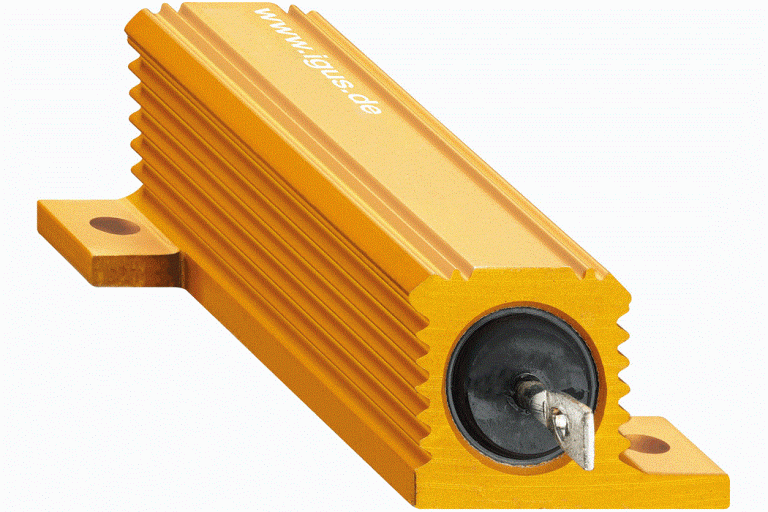Motors: what is a brake resistor, and what is it used for?
Adriana Glazer | 6. August 2021
Electric motors sometimes need a brake resistor. But what does the brake resistor do, and what advantages does it offer?
Since a motor’s design is similar to a generator’s, motors always generate voltage. This is counterintuitive, since motors actually use electrical power to generate mechanical (rotor) movement, but it is a fundamental principle of electrical machines. Induction from movement Motor technology experts refer to the counter-electromotive force, or CEMF. This force counters the force fed into the motor and increases with speed, which is also one reason why motor torque falls off at high speeds.

But what does all this have to do with the brake resistor?
After a long but greatly simplified introduction, we have now arrived at our topic. In the braking process, the motor control system reduces the motor speed. In DC motors, this is done by reducing the motor voltage output. Inertia converts the kinetic energy remaining in the system into electrical energy (generator principle described above). This electrical energy can damage the control system or other voltage system components. The brake resistor creates a consumer for this energy and converts it to heat. Thus a brake resistor allows quick braking even with heavy loads.
When do we recommend a brake resistor for our control system?
Currently, a brake resistor can be used only with the D1 motor control system in conjunction with a BLDC motor or a DC motor. In the manual, we go into a great deal of detail about the brake resistor’s design and make recommendations. A good rule of thumb is that you need a brake resistor when you need to brake heavy loads quickly. This is rather vague, I know; if you need a precise analysis, feel free to contact me.
How much does a brake resistor cost?
igus-compatible brake resistors cost between €6 and €12 each, so they are fairly inexpensive. Nevertheless, they make a great technical difference and protect much more expensive components such as the control system.
What brake resistors does igus offer?
We recommend the following brake resistors for the indicated motor sizes:
| Motor | Resistance value | Power |
| MOT-EC-42-XXX | 18 Ω | 15 W – 35 W |
| MOT-EC-56-XXX | 4,7 Ω | 25 W – 65 W |
| MOT-EC-60-XXX | 3,3 Ω | 50 W – 85 W |
| MOT-EC-86-XXX | 2,8 Ω | 50 W – 100 W |
You can find more information about this topic in the shop.
How do I hook up a brake resistor?
You can find a detailed description in the D1 motor control system manual. As a general rule, this is an output that the brake resistor can be wired to.

Do you have any questions?
Send us your contact request here
Our experts will help find a solution for you.
